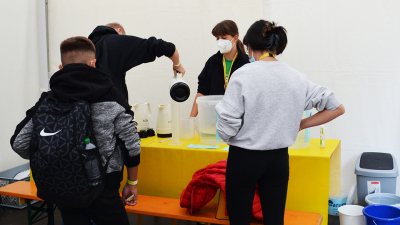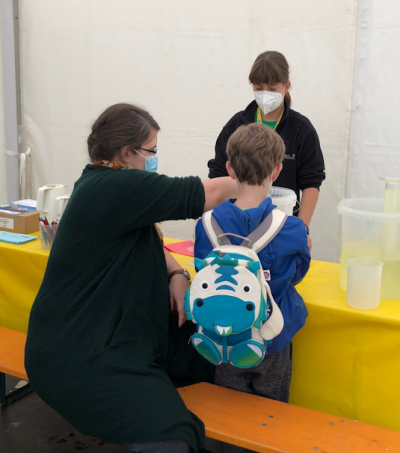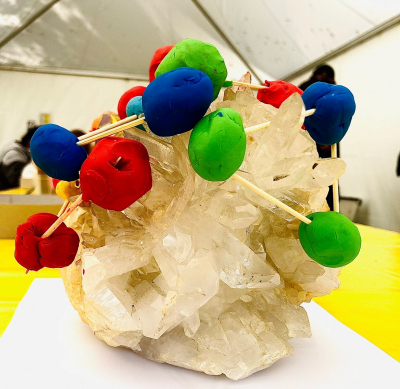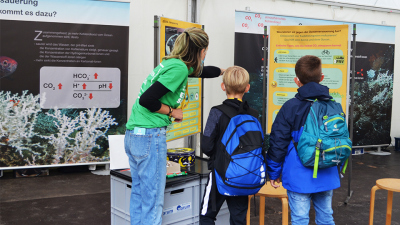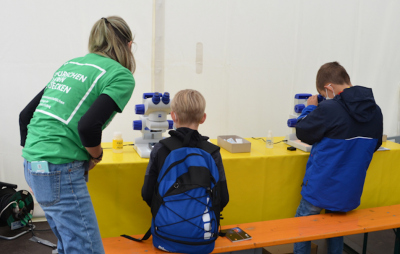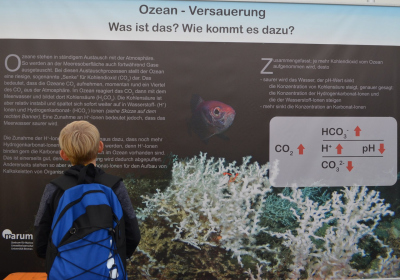Page path:
- Home
- Discover
- Archive News
- News 2021
- Explore Science
Chemistry is the theme of "Explore Science”
Exciting topics await kindergarten children, schoolchildren and families at 19 hands-on stations: Toxic plants as well as crystals and metals can be examined. Researchers will also explain how space travel is related to chemistry, what ocean acidification is and how colors are created.
